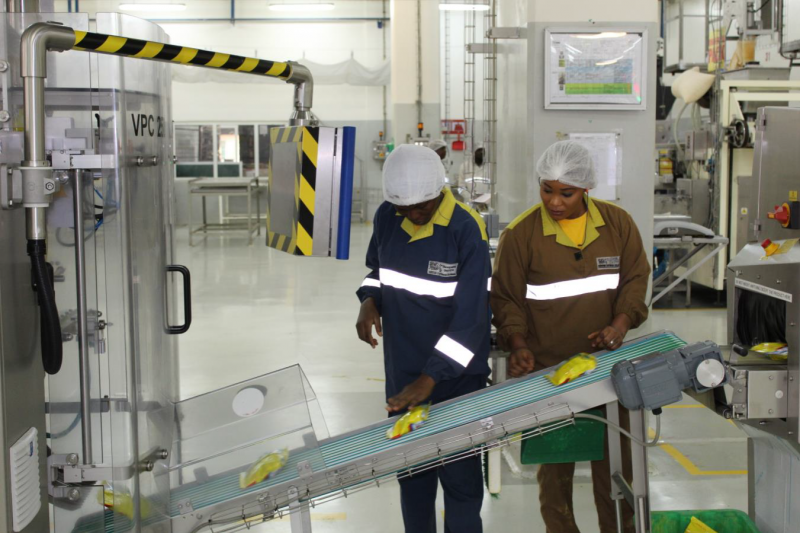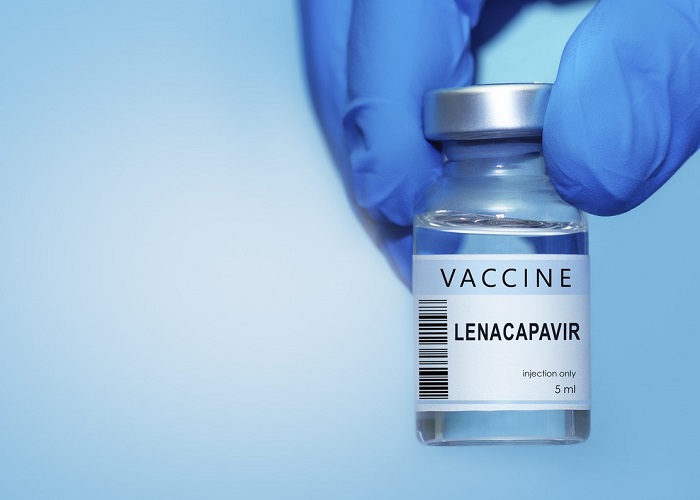Health
More Women in Workplace Boosts Performance—Nestle

By Dipo Olowookere
World’s largest food and beverage company, Nestlé, has launched an ambitious Gender Balance Acceleration Plan called From Aspiration to Action as part of its activities to highlight International Women’s Day 2019.
The firm says it believes that a gender balanced workforce makes business sense as it helps to boost innovation and performance, which as a result, better serves the needs of its consumers.
Nestlé’s Global CEO Mark Schneider announced the company’s acceleration plan to make gender balance a priority, based on three pillars: bold leadership, an empowering culture and a set of enabling practices.
In the Central and West Africa Region (CWAR), Nestlé aims to bring the Gender Balance Acceleration Plan to life through its multi-pronged initiatives, such as trainings to raise awareness on gender biases, career development and mentoring programmes for women, gender-sensitive succession planning, offering breastfeeding rooms and nurseries at work, as well as the implementation of its Maternity Protection Policy.
Driving innovation
At Nestlé CWAR, increasing the number of women in the workforce and boosting gender balance is helping to drive innovation.
Bunmi Etty-Mfon, Total Performance Management Manager for Technical at Nestlé CWAR, who has led factory efficiency for over eight years to deliver safe, quality products in Nigeria, Ghana, Senegal, Cameroon and Côte d’Ivoire, has encouraged and experienced this herself.
“When there’s a good mixture of men and women, team-building activities tend to be more balanced, helping to develop greater empathy among individuals and teams. Diversity stimulates greater effort from everyone, leading to improved decision-making.
“Also, as the majority of consumers in our region are women, it gives us great perspective to lead in innovation,” she said.
Rahamatou Palm, Category Manager for our Nescafé business in Burkina Faso, Mali, Niger, Togo and Benin – and a member of the Cluster Management Committee of which half are women – agrees that diversity is key for the company’s growth.
“Gender balance is important to complement the thinking between men and women, leading to more productive debates and innovative decisions. It also fights against discrimination to ensure a better, and more dynamic workplace,” she emphasised.
Improving the company’s performance
Nestlé CWAR is also actively enhancing the company’s performance by increasing the number of women in departments that traditionally hire men.
To close the current gender gap, the Technical and Supply Chain Management departments are looking to recruit a majority of women as graduate trainees, and include at least one female candidate in the final interview stage. Efforts are also being made to increase the number of women working in factories across the region.
Ibukun Ipinmoye, Factory Manager of the Flowergate Factory, which includes the first 100% female production line in Nestlé Nigeria, has noted an increase in productivity.
“We soon realised that the female production lines are very productive thanks to their highly committed and collaborative spirit and their careful handling of the equipment. Gender diversity has helped to boost productivity,” he said.
“As a result, we plan to introduce female operators to more complex lines to utilise their multitasking skills, and aim to hire female management trainees to 80%.”
Gbenga Oladunjoye, Factory Manager for Nestlé Ghana, has also seen improved performance in his team.
“My team is more productive, with readily available good talent and a wide diversity of ideas. Women have helped to ignite creativity, offered various perspectives and improved our business,” he said.
Gbenga, who oversees the Tema facility and is part of the Country Management team, added: “They mostly make the decisions to buy products for their families so having women at Nestlé makes business sense.”
Overcoming biases
However, creating gender balance on the factory floors or in offices does not come without some obstacles. Pressure to conform to gender stereotypes, resistance from men, adapting work patterns to family life and maternity commitments, and the shortage of females in certain fields like engineering, are just some of the gender balance challenges that working women face.
Julia Atta, Production Manager for Milks in Nestlé Ghana, was appointed as the first female production manager for Nestlé CWAR last year – marking a milestone for the company in the region.
She explained that she went into this ‘non-traditional’ line of work for women to change mind-sets and make an impact. But this came with its challenges.
“For any women in a male-dominated environment, even a genuine reason can become a woman’s excuse. For example, I felt I had to turn down an opportunity to go into production because I got pregnant, even though factory management made me an offer. At the time, I was unsure it was the right decision to join, as production was not seen as an ideal environment for my ‘condition’,” Julia said.
“Thanks to the support of management, I had another opportunity to take up a role outside of the country for five months. However, others made me feel like I had made the wrong decision to leave my young child behind – but I was determined to make it work.”
Today, Julia heads the milk production and technical team, leading the production, quality, safety, cost and delivery of 130 tonnes of evaporated milk a day, while also developing her team of junior and senior employees.
Women leaders inspiring other women
Creating a solid pipeline of female talent across all levels enables more women to climb up the career ladder to top positions, which has a ripple effect of encouraging other women to achieve their goals.
“Being a career woman is never a burden or added responsibility, but a platform to inspire and motivate the people you are lucky enough to impact,” Julia continued.
“When a woman is appointed in a leadership role, some people believe this is because of a gender balance strategy and not based on merit. It must be based on non-discrimination, equal opportunities, competence and providing the right support for both men and women in the workplace. This is how we will be genuinely able to highlight and remove the roadblocks to career advancement at work,” she added.
Gbenga Oladunjoye, Factory Manager at the Tema facility in Nestlé Ghana, emphasised that women at Nestlé inspire other women to follow suit, and said: “They enhance inclusiveness, advance opportunities and give hope to women worldwide that they can achieve the same too.”
Building a strong pipeline of talent is key to gender balance
Embracing diversity and increasing the number of women in leadership roles and in the workforce all make business sense at Nestlé CWAR – and for the company worldwide. This is part of its commitment to enhance gender balance in its workforce and empower women across the entire value chain.
But this just doesn’t stop here. To help achieve this across the board, organisations need to build a solid and balanced pipeline of talent and invest in women’s education and training to create and instil diversity at all levels, and in all functions.
“We recognise that gender balance, women’s rights, education for women and women’s empowerment are critical to Creating Shared Value– our approach to how we do business in creating value for both our shareholders and for society,” said Rémy Ejel, Market Head for Nestlé CWA Ltd.
“It is also key to contributing to Sustainable Development Goal 5: Achieve gender equality and empower all women and girls – and we encourage other companies to also make gender balance a priority,” Mr Ejel concluded.
Health
Chimamanda: MDCN Suspends Euracare Medical Director, Anesthesiologist

By Adedapo Adesanya
The Medical and Dental Practitioners Investigation Panel of the Medical and Dental Council of Nigeria (MDCN) has invoked its order of suspension against the Medical Director of Euracare Multi-Specialist Hospital, Dr Tosin Majekodunmi, and two others, after establishing a prima facie case of medical negligence against them in the management of the late Nkanu Adichie-Esege.
Nkanu, the son of renowned Nigerian author, Chimamanda Ngozi Adichie and Dr Ivara Esege, died on January 7, 2026, after receiving care at Atlantis Hospital and undergoing medical procedures at Euracare Multi-Specialist Hospital in Lagos. He was 21 months old.
Apart from the Medical Director at Euracare, the panel also suspended the anesthesiologist at the same hospital, Dr Titus Ogundare, as well as the Chief Medical Officer at Atlantis Pediatric Hospital, Dr Atinuke Uwajeh.
The trio were suspended from medical practice in Nigeria pending the determination of their case by the Medical and Dental Practitioners Disciplinary Tribunal.
A statement signed by the committee’s secretary, Dr Enejo Abdu, also disclosed it was determining if there is a prima facie case of professional misconduct against 10 other doctors.
These are Dr Adeseye Akinsete, Dr Chidinma Ohagwu, Dr Anthony Ajeh, Dr Amarachi Bayo, and Dr Nkechi Peji. Others are Dr Olaoye Oludare, Dr Agaja Oyinkansola, Dr Patricia Akintan, Dr Babatunde Bamgboye, and Dr Raji Faidat.
The panel, which also cleared eight other doctors, reached these decisions after considering the complaint against all 21 doctors and reviewing their counter-affidavits, including their oral depositions on oath.
It concluded its investigation at its 25th session held at Excel Hotel & Resort in Abuja on February 17 and 18, 2026.
The 21-month-old child, Nkanu Adichie-Esege, was initially admitted to Atlantis Hospital in Lagos for what was described as a worsening but initially mild illness.
While arrangements were being made to transfer him to Johns Hopkins Hospital in the United States, Atlantis referred him to Euracare for pre-flight diagnostic procedures, including an MRI, lumbar puncture, and insertion of a central line.
However, the child passed following the procedures.
His parents have alleged medical negligence and professional misconduct in connection with his death.
In a legal notice dated January 10, 2026, issued by the law firm led by Kemi Pinheiro (SAN), Ms Adichie and her husband accused Euracare, its anesthesiologist, and other attending medical personnel of breaching the duty of care owed to their son.
The notice stated that the child, born on March 25, 2024, was referred to Euracare on January 6, 2026, for diagnostic and preparatory procedures ahead of an emergency medical evacuation to the United States, where a specialist team was reportedly on standby.
The procedures reportedly included: Echocardiogram, Brain MRI, and insertion of a peripherally inserted central catheter.
Lumbar puncture, Intravenous sedation using propofol was administered.
The parents alleged that the child developed sudden and severe complications while being transported to the cardiac catheterisation laboratory after the MRI.
The development has raised worries and questions about the country’s healthcare.
Health
Nigeria to Receive Breakthrough HIV Prevention Drug Lenacapavir—NACA

By Adedapo Adesanya
The National Agency for the Control of AIDS (NACA) has announced that Nigeria would take delivery of Lenacapavir, a groundbreaking human immunodeficiency virus (HIV) prevention drug that has shown 100 per cent effectiveness in preventing the viral infection in clinical trials.
A short statement released by the Head of Public Relations for NACA, Mrs Toyin Aderibigbe, on Monday said the agency had secured regulatory approval from the National Agency for Food and Drug Administration and Control (NAFDAC).
HIV over time causes acquired immunodeficiency syndrome (AIDs), a condition in which progressive failure of the immune system allows life-threatening opportunistic infections and cancers to thrive.
Lenacapavir is an injectable treatment administered twice a year, making it a more convenient alternative to daily oral prevention drugs.
The drug is expected to be available in Nigeria and 119 other low- and middle-income countries at an affordable price of $40 per person annually, thanks to voluntary licensing agreements with generic manufacturers.
“The Government of Nigeria is advancing preparations for the introduction and rollout of Lenacapavir as Pre-Exposure Prophylaxis (PrEP).
“This is part of the government’s commitment to strengthen HIV prevention and accelerate progress toward epidemic control,” the statement read.
NACA listed some significant milestones achieved, including completion of landscape and readiness assessments across ten states: Akwa Ibom, Anambra, Benue, Cross River, Ebonyi, FCT, Gombe, Kano, Kwara, and Lagos, alongside regulatory approval by NAFDAC.
“The commodities are expected in the country in March 2026,” NACA noted.
Nigeria has approximately 1.9 million people living with HIV, with a national prevalence of 1.3% among adults aged 15-49 years.
The country recorded 74,000 new HIV infections and 51,000 AIDS-related deaths in 2021.
The South-South zone has the highest HIV prevalence at 3.1%, while women aged 15-49 years are more than twice as likely to be living with HIV as men.
Daily oral PrEP has been available in Nigeria since 2016, but uptake varies. Adherence issues like pill fatigue, stigma, limited awareness, and inconsistent access have hindered wider use.
Newer PrEP options include injections that last two or six months, providing an alternative for those who prefer less frequent dosing and may overcome many barriers of daily oral use.
Health
Union Disrupts NAFDAC Operations in Lagos Over Sachet Alcohol Ban

By Adedapo Adesanya
Members of the National Union of Food, Beverage and Tobacco Employees protested at the Lagos office of the National Agency for Food and Drug Administration and Control (NAFDAC), disrupting operations in reaction to the ban on sachet alcohol.
The protesting union members barricaded the agency’s premises in Isolo, meaning staff who arrived early to resume duty were forced to remain outside the complex.
Recall that NAFDAC has continued the ban on alcoholic beverages sold in sachets and PET bottles below 200 millilitres, despite calls from certain quarters, including the picketers.
The union is demanding the immediate unsealing of affected factories and production lines, warning that sustained enforcement of the policy could trigger significant economic consequences across the industry.
It is the second time this month that union members disrupted the Lagos NAFDAC office over what they described as the agency’s refusal to comply with an alleged federal government directive to suspend enforcement of the ban on the production and sale of alcoholic beverages in sachets.
The union claimed that directives had been issued by the Office of the Secretary to the Government of the Federation and the Office of the National Security Adviser, calling for the suspension of enforcement and the reopening of sealed production lines.
However, NAFDAC dismissed the claims, maintaining that it had not received any official instruction from the Federal Government to halt enforcement of the ban on sachet and PET-bottled alcohol.
Meanwhile, police officers were later seen at the NAFDAC Isolo premises, which dispersed the blockade to allow NAFDAC staff back into the premises.
Representatives of the Director-General of NAFDAC later engaged the protesting union in talks, but the meeting ended without resolution as demonstrators insisted their agitation would continue.
Union leaders presented their concerns during closed-door discussions with a director within the agency and the Special Assistant to the Director-General. However, no agreement was reached.
The protesters are urging NAFDAC to reconsider what they describe as the strict enforcement of the ban on sachet alcohol. Instead, they want the agency to focus on regulating access to such products, particularly by restricting sales to minors, while intensifying public enlightenment campaigns on responsible consumption.
Despite this, protesters say they will not stop until their demands are addressed.
-

 Feature/OPED6 years ago
Feature/OPED6 years agoDavos was Different this year
-
Travel/Tourism10 years ago
Lagos Seals Western Lodge Hotel In Ikorodu
-

 Showbiz3 years ago
Showbiz3 years agoEstranged Lover Releases Videos of Empress Njamah Bathing
-

 Banking8 years ago
Banking8 years agoSort Codes of GTBank Branches in Nigeria
-

 Economy3 years ago
Economy3 years agoSubsidy Removal: CNG at N130 Per Litre Cheaper Than Petrol—IPMAN
-

 Banking3 years ago
Banking3 years agoSort Codes of UBA Branches in Nigeria
-

 Banking3 years ago
Banking3 years agoFirst Bank Announces Planned Downtime
-

 Sports3 years ago
Sports3 years agoHighest Paid Nigerian Footballer – How Much Do Nigerian Footballers Earn












